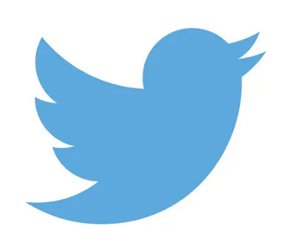Friday January 8, 2021 | NATIONAL
Editorial Analysis by Mary P Brooke, editor | Island Social Trends
Social media giant Twitter has permanently suspended US President Donald Trump’s account, saying that that his posts would pose risk of ‘further incitement of violence’.
While few people are disputing that Trump incited the mob violence at the US Capitol Building on Wednesday — very likely with the intention of disrupting the final administrative process of declaring the winner of the November 2020 US Presidential Election as Joe Biden — this action by a private company does highlight the power than digital-age tech companies have to influence major public discourse.
People tend to think of their access to social media as an irrevocable right of the modern age. This decision taken by Twitter today proves otherwise.
Twitter has immense power to shape today’s society and the lives of politicians and individuals. A hashtag (#) can make or break a campaign or a trend. The reach of one Tweet can be to millions of people, giving exposure to the average person that would otherwise not be possible. Some people have found ways to build an entire lucrative career around being followed by millions in social media.
Facebook had blocked Trump’s account with their mega-platform but the account has been reactivated.
Political response to the Capitol Building incident:
Prime Minister Justin Trudeau blames Trump for riots that left five people dead. NDP Leader Jagmeet Singh is calling for a ban on hate groups in Canada.
US Congressional House Speaker Nancy Pelosi said today that she had spoken to the chairman of the Joint Chiefs of Staff about preventing Trump from ordering a nuclear strike in his final days. Apparently there are enough military checks in place that a sole decision on Trump’s part would be unlikely to allow for misuse.
Massive role and reach of social media:
All of this calls into question the opportunity for tech companies to censor or block free speech. These companies can also now moderate what is considered ‘right, good or valuable’. This borders on censoship.
Twitter’s current system of ‘Verification’ (the check mark in a blue circle) has for a while been entirely a Twitter internal decision. While an application process is slowly opening up, there is little to no mechanism for requesting consideration or having a review of their internal determination. This is like a game of snakes and ladders — if they deem a simple Tweet feed as ‘verified’ it can skyrocket one business or social leader far beyond another who may have just as much merit.
Whoever knows how to ‘game the system’ to make social media and digital marketing work in their favour has the upper hand in today’s ultra-new online economy.
So far, in Canada, social media and tech giants that operate online from locations outside of Canada do not have to pay taxes on the sales made in Canada. This also draws ad revenue away from Canadian news outlets of all sizes.
Even the federal, provincial and municipal governments as well as school boards and other tax-supported levels of governance use the ‘free’ access to promotion that social media provides. This is not supportive of local, regional and national professional news organizations that operate businesses which allow for the delivery of journalism to a democratic citizenry.
News media caught in the mix:
Twitter is even ‘grading’ media outlets and journalists with their verification system which calls for some analysis on their power to influence free speech in this manner or at least to be considered to have what authority to deem one media outlet as more verifiable than other.

There is still an important role for professional news media — different than the tech social media platforms that even news agencies use for the benefit of publication reach. Professional news organizations presumably employ professional journalists who still dig up, formulate and contextualize the content that attentive citizens rely upon for their decision-making in a fair, safe and democratic society.
Facebook algorithmically has been seen to downgrade smaller news sites unless more advertising purchases are made.





